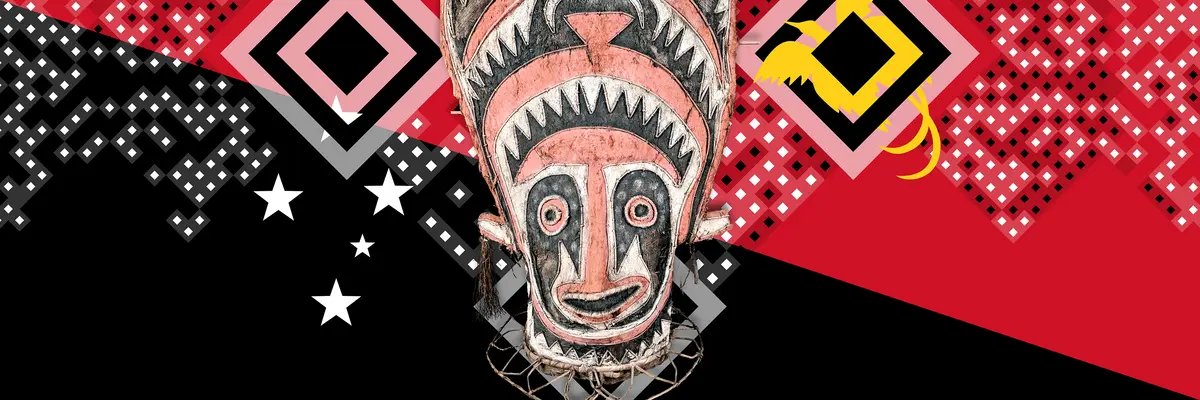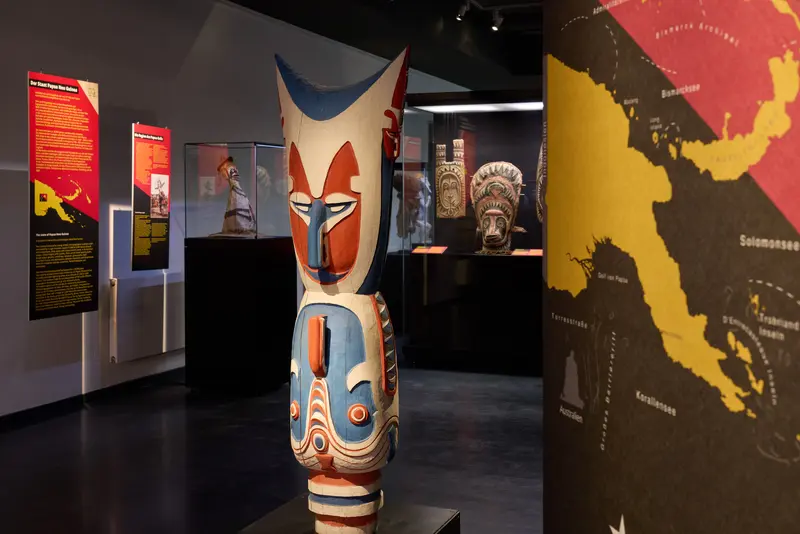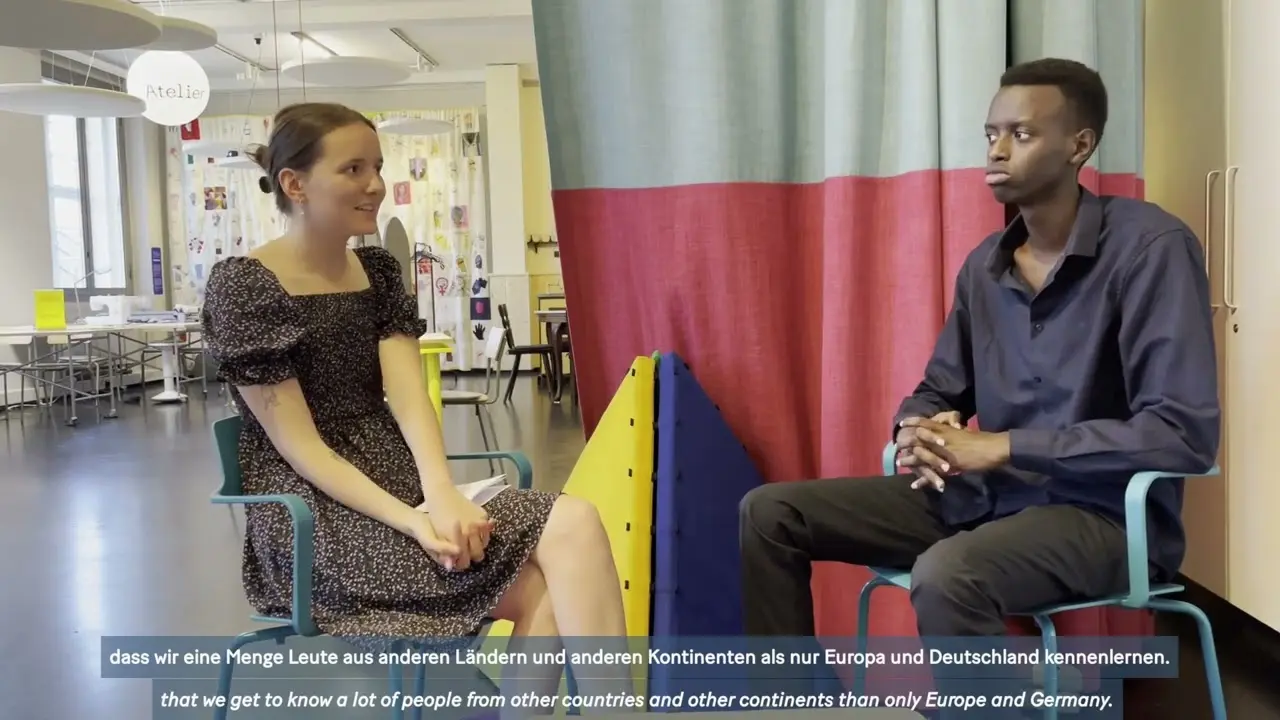WanBel
In the official language Tok Pisin, WanBel means “one Belly” – symbolizing community, cohesion, and mutual understanding.
Over 40 museums in 14 countries are participating in this project. The GRASSI Museum of Ethnology in Leipzig, with its significant collection from this region, was also invited to participate as a partner. Its special presentation focuses on cultural artifacts from the Papua Gulf, the Sepik River region, and the Bismarck Archipelago. Ancestral figures, filigree Malanggan carvings, and impressively designed objects bear witness to ancient cultural traditions that are still alive today and a creative art form that continues to this day, drawing its inspiration from a close connection to the land and spiritual heritage.


